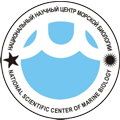The International Cooperation Department of the NSCMB FEB RAS has summed up the results of cooperation with the Vietnam Academy of Science and Technology (VAST). As we remember, the President of the Russian Federation V.V. Putin paid a state visit to the Socialist Republic of Vietnam on June 19–20, 2024. The year of this visit marks the 30th anniversary of the signing of the Treaty on the Basic Principles of Friendly Relations between the Socialist Republic of Vietnam and the Russian Federation (of June 16, 1994). In a warm atmosphere, the sides held an in-depth exchange of views on a wide range of topical issues and areas of Russian–Vietnamese relations, including scientific, technological and humanitarian ones.
Russia and Vietnam have agreed to continue cooperation within the framework of the joint Russian–Vietnamese Tropical Research and Technology Center (Tropcenter). It is planned to be transformed into a representative model and a symbol of cooperation between the two countries through the effective use of the Tropcenter’s potential, which would provide a wide range of research studies of regional and international importance by Russian and Vietnamese specialists within the framework of the Center.
The NSCMB FEB RAS has long-standing scientific and technical relations with research institutions in Vietnam. The cooperation is implemented through joint government projects, open scientific laboratories, and also memoranda of understanding covering many areas in marine biology, ecology, biochemistry, study of biological and biochemical diversity of natural resources, exchange of scientific personnel, etc.
To date, a total of six international agreements have been signed between the institutions of NSCMB FEB RAS and the VAST institutions, including the Institute of Technology Reseach and Application VAST (Nha Trang), the Institute of Oceanography VAST, and the Institute of Natural Products Chemistry VAST.
Two joint laboratories with these institutions have been created and are successfully operating:
- The International Vietnamese–Russian Research Laboratory for Marine Biology and Ecology (under the aegis of the FEB RAS and VAST) with the Institute of Oceanography VAST was established in 2009. At the moment, studies on marine biodiversity and physiology of aquatic organisms are ongoing, and the Laboratory is planning to expand their scope by involving young scientists and graduate students from both sides, with focus on two areas of research: reproduction of commercially valuable aquatic organisms (mollusks, sea urchins, holothurians, etc.) and monitoring of marine bioresource ecosystems (including coral reefs).
- The Open Russian–Vietnamese Research Laboratory between the NSCMB FEB RAS, Institute of Technology Reseach and Application VAST and the Institute of Natural Products Chemistry VAST was established in 2010. The Laboratory conducts studies on biological and chemical diversity of coral reefs in Vietnam. In 2022, the research project under the grant no. 21-54-54002 “Molecular and genetic approach to the study of biodiversity of symbiotic dinoflagellates of coral reefs of Vietnam, conducted jointly by RFBR and Vietnam Academy of Science and Technology” was successfully completed.
Annually, researchers and other employees from the NSCMB FEB RAS are sent to Vietnam. Over the last 10 years, 49 our representatives have visited this country under joint scientific projects to participate in scientific expeditions and field studies.
In turn, representatives of Vietnam’s scientific institutions, as well as diplomatic delegations, have regularly visited the institutions of NSCMB FEB RAS for research and meeting purposes. Over the last 10 years, NSCMB FEB RAS and Vietnamese scientific institutions have participated in nine joint programmes and projects. The total number of joint publications by researchers from the NSCMB FEB RAS and the Vietnam’s scientific organizations has approached 40 over the past decade.
Relations between our countries are based on long-standing traditions of friendship and are an integral factor providing the tight scientific and technical cooperation.


